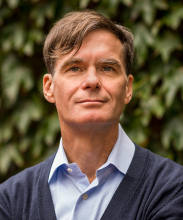
Physician and author Dr. Jason Karlawish joins the podcast for the first installment of a four-part series centered around his new book, The Problem of Alzheimer's: How Science, Culture, and Politics Turned a Rare Disease Into a Crisis and What We Can Do About It. In the book, Karlawish blends history and science to detail the most important breakthroughs in diagnosing and treating Alzheimer’s disease. He also offers an argument for how we can live with dementia and proposes reforms we can make as a society that would give caregivers and patients better quality of life. In this episode, Dr. Chin and Dr. Karlawish discuss Alzheimer’s disease in a historical context and the disease's changing meaning. Guest: Jason Karlawish, MD, co-director, Penn Memory Center
Episode Topics:
- Why did you choose to focus on the history of Alzheimer’s disease? 1:37
- Why is it so important to use correct terminology in the clinic? 2:40
- What do you say to patients when you diagnose Alzheimer’s disease? 3:54
- How do you help people understand the meaning of an Alzheimer’s diagnosis? 5:39
- Are there any specific experiences you’ve had when diagnosing patients? 7:25
- What was the first breakthrough in Alzheimer’s research? 9:21
- What did you discover about the history of Mild Cognitive Impairment? 11:27
- Why are Bill Klunk and Chester Mathis so important to Alzheimer’s research? 17:50
- Would Klunk & Mathis’ methods be allowed in present-day research? 21:41
- What happened at the 2013 MEDCAC meeting and why is it significant? 22:32
Learn more about Jason Karlawish's book
Find Dementia Matters online
Follow us on Facebook
Follow us on Twitter
Subscribe to this podcast through Apple Podcasts, Spotify, Podbean, or Stitcher, or wherever you get your podcasts.
Show Notes
Dr. Karlawish's new book is The Problem of Alzheimer's: How Science, Culture, and Politics Turned a Rare Disease into a Crisis and What We Can Do About It. Learn more at his website.
Dr. Karlawish is co-director of the Penn Memory Center.



